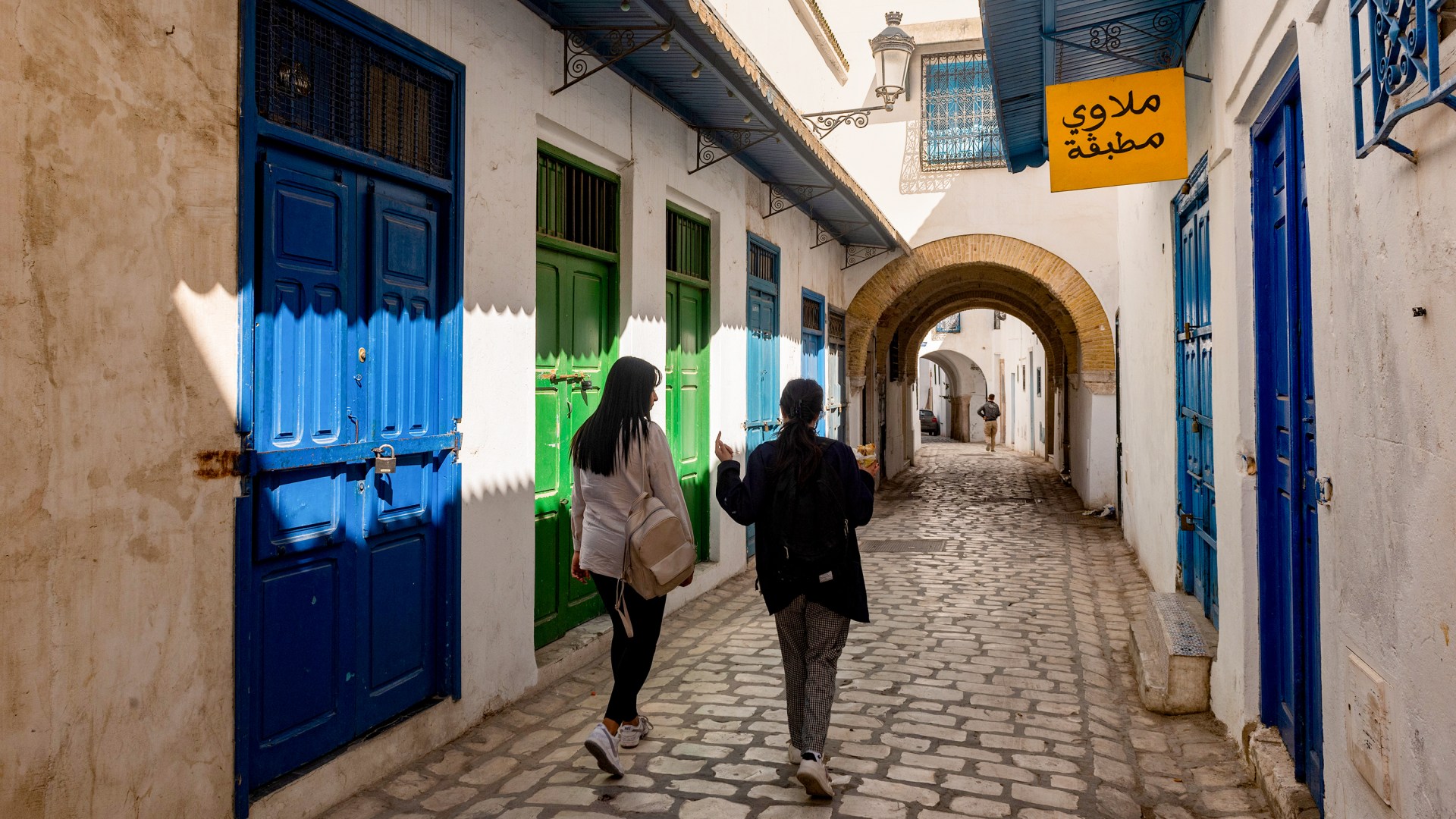Almost 15 years ago, Tunisian calls for democracy reverberated throughout the Middle East and North Africa, toppling dictators and empowering citizens with new liberties.
Last week, a Tunisian court sentenced to prison nearly 40 political, media, and business leaders perceived to be threats, some receiving sentences up to 66 years.
Still, on a typical Sunday at Église Réformée de Tunisie (ERT, Reformed Church of Tunisia), 120 or so congregants walkpast a block of French-colonial-style apartments, turninto a courtyard adorned with bougainvillea, and enterthe sanctuary.
They have a variety of backgrounds. One was an astrologer who read the Bible and had his whole cosmology turned upside down. He asked to be baptized and now leads the liturgy at ERT’s services. Another attendee learned about Christianity online, told his mother, and faced her disappointment. Several years later, she had a dream in which Jesus came to her and told her to read the Bible. She woke up, did, and professed faith in Christ. Another is a young Tunisian woman who rejected Islam and became a Communist but felt compelled to seek a better purpose. She was recently baptized.
But most of the worshipers at the 143-year-old church are from sub-Saharan Africa and came to Tunis for college, or they are passing through the capital on their way to Europe. Sunday services also include a handful of American and Canadian expats.
Some Tunisians view Christianity as a foreign force, counter to the Tunisian way of life. That’s ironic, because Christians lived in what is now Tunisia within decades after the first Easter, although the gospel’s exact journey has not been confirmed.
The early Christian apologist Tertullian, born in Carthage in 160, established core church doctrines that inspired the martyr Cyprian and later Augustine, a bishop in neighboring Hippo (modern-day Annaba, Algeria). A strong Christian presence continued until the Muslim conquest in North Africa in the seventh century reduced the Christian population to a small minority that persists today.
Tunisians then lived under numerous empires before the French took over in the late 19th century. After gaining independence in 1956, Tunisia was initially more tolerant toward religious minorities than many of its neighbors were, even protecting the freedom of religion in its constitution.
For the first decades of the post-independence period, a liberal expression of Islam coexisted with Christianity. But in 1987, Zine al-Abidine Ben Ali took power and sought to tightly control all minority movements that could threaten his power.
On December 17, 2010, a young, demoralized man staggered angrily into a local government office in central Tunisia. He doused himself in paint thinner and lit a match. Incensed by Ben Ali’s decades-long authoritarian rule, Mohamed Bouazizi chose this gruesome final act of protest out of desperation for a freedom he believed impossible to attain.
Yet his death sparked the Arab Spring protests that unseated Ben Ali and raged in various forms throughout the Middle East and North Africa for 15 years.
The movement ignited civil wars in Libya, Yemen, and Syria; spurred the removal of dictators in three of the North African countries; and launched an initially promising political transformation in Tunisia. In 2014, the country organized its first free and fair elections and had a Nobel Peace Prize–winning transition followed by subsequent peaceful transfers of power. Many believed Tunisia would go the same way.
A reworking of the constitution, though, centralized power in the executive. The president is both the head of public prosecution and the sole figure capable of dismissing any judge on relatively limitless grounds.
The constitution includes language directing the state to protect Islam and guarantee its preeminence. One constitutional expert concluded that the government “is founding a religious state.”
Anti-immigration sentiment in the country has further complicated the lives of many Tunisian Christians. About 16,500 black, sub-Saharan refugees and migrants have registered with the UN High Commissioner for Refugees, though many have entered the North African nation without registering.
In 2023, authorities rounded up 1,200 black Africans, destroyed their property, and, allegedly, physically and sexually assaulted the migrants before expelling them at the Libyan border.
Anyone who speaks out against the government increasingly risks prosecution. Decree-Law 54 is ostensibly a cybercrime law prohibiting speech that spreads false information, but the definition of what that is remains vague and subjective. Several recently-sentenced political opponents were arrested under the law, now weaponized to stifle dissent, hamstring lawyers, and punish antigovernment comments by journalists and others.
ERT and other churches in Tunisia try to make sure that new converts don’t believe their faith will automatically make life easier. As Augustine, who spent much of his ministry in Carthage, once wrote, God’s grace is meant “to help good people, not to escape their sufferings, but to bear them with a stout heart, with a fortitude that finds its strength in faith.”
Luke Waggoner is an international political and governance consultant.
This article has been shortened at the urging of Tunisian Christians.












